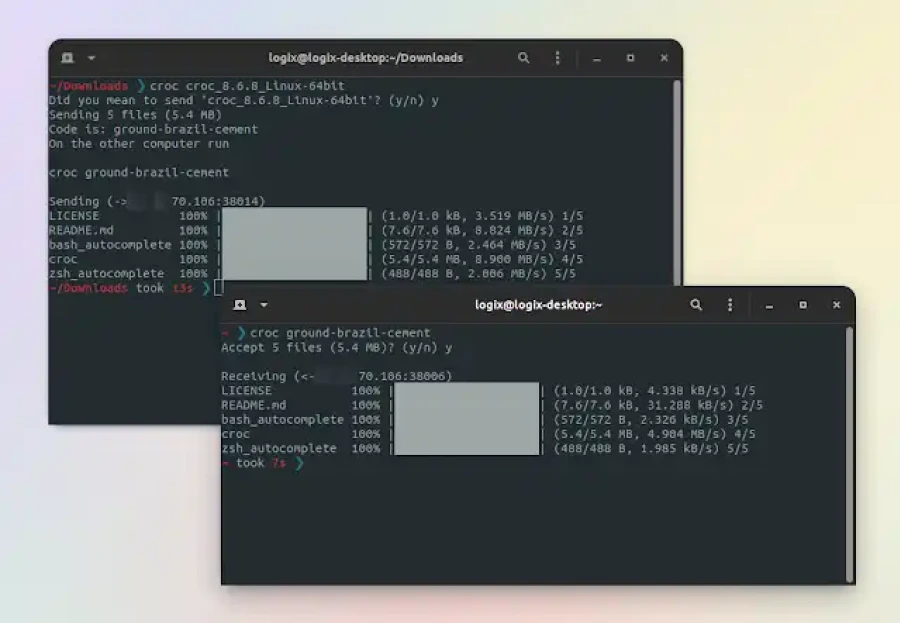
croc is a free and open-source command line tool for secure file transfers between computers. It uses relay-assisted peer-to-peer transactions and end-to-end encryption via password-authenticated key exchange. The program is written in Go and is available for Linux, Windows, macOS and *BSD. Learn about croc's key features and see how easy it is to use croc to send a file or folder in this Linux Uprising tutorial.
The idea behind croc is being able to transfer files and folders between cross-platform computers securely, fast and easy. With support for resumable, peer-to-peer transfers. As a bonus feature, croc is also able to securely transfer a short text or URL directly.
The data transfer is done using a relay, either using raw TCP sockets or websockets. When the sender and the receiver are on the same LAN, croc uses a local relay, otherwise a public relay is used. Thanks to this, croc can send files between computers in the same LAN, or over the Internet, without having port-forwarding enabled.
The data going through the relay is encrypted using a PAKE-generated session key. For this, croc uses code phrases, a combination of three random words. By default, a code phrase can only be used once between two parties, so an attacker would have a chance of less than 1 in 4 billion to guess the code phrase correctly to steal the data.


















